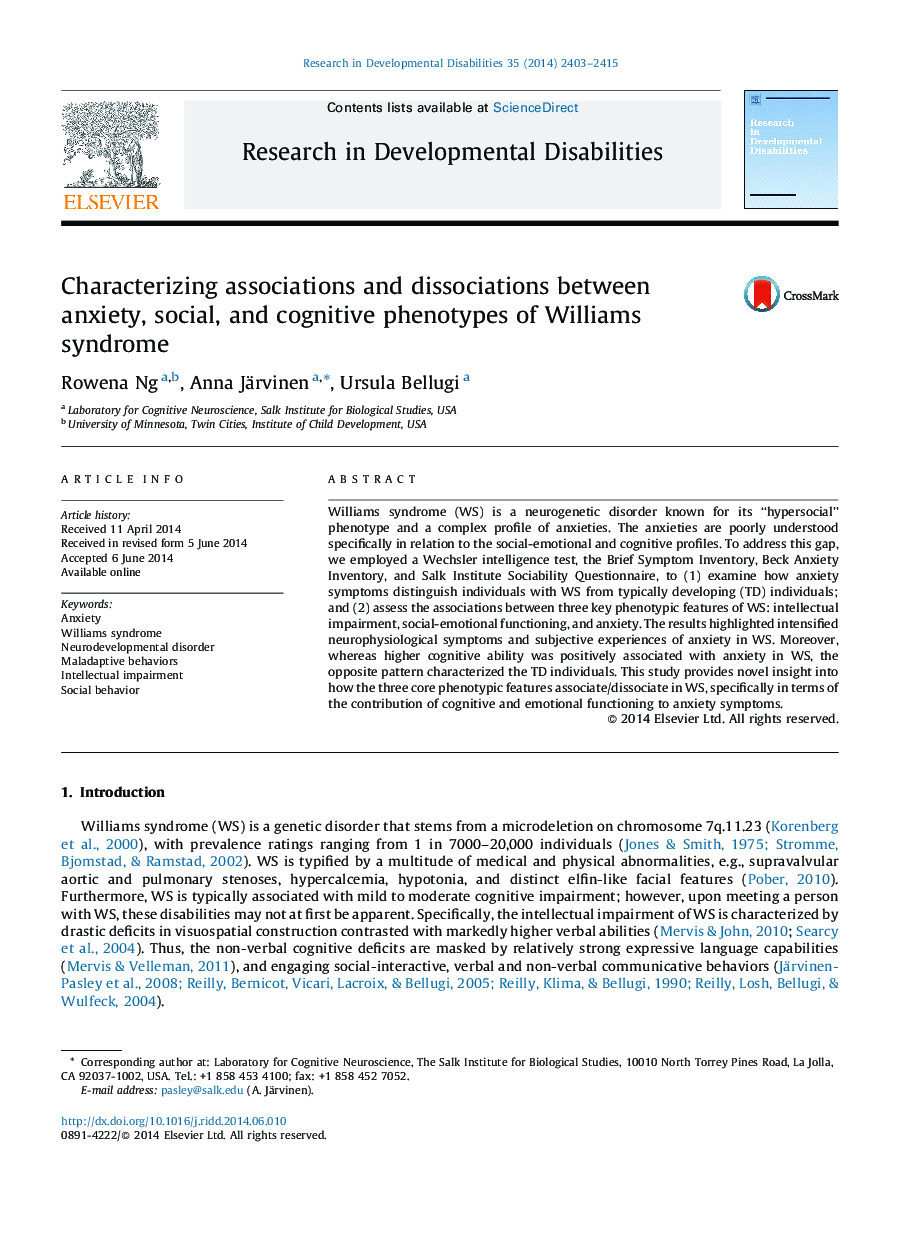| Article ID | Journal | Published Year | Pages | File Type |
|---|---|---|---|---|
| 10317364 | Research in Developmental Disabilities | 2014 | 13 Pages |
Abstract
Williams syndrome (WS) is a neurogenetic disorder known for its “hypersocial” phenotype and a complex profile of anxieties. The anxieties are poorly understood specifically in relation to the social-emotional and cognitive profiles. To address this gap, we employed a Wechsler intelligence test, the Brief Symptom Inventory, Beck Anxiety Inventory, and Salk Institute Sociability Questionnaire, to (1) examine how anxiety symptoms distinguish individuals with WS from typically developing (TD) individuals; and (2) assess the associations between three key phenotypic features of WS: intellectual impairment, social-emotional functioning, and anxiety. The results highlighted intensified neurophysiological symptoms and subjective experiences of anxiety in WS. Moreover, whereas higher cognitive ability was positively associated with anxiety in WS, the opposite pattern characterized the TD individuals. This study provides novel insight into how the three core phenotypic features associate/dissociate in WS, specifically in terms of the contribution of cognitive and emotional functioning to anxiety symptoms.
Keywords
Related Topics
Life Sciences
Neuroscience
Behavioral Neuroscience
Authors
Rowena Ng, Anna Järvinen, Ursula Bellugi,
